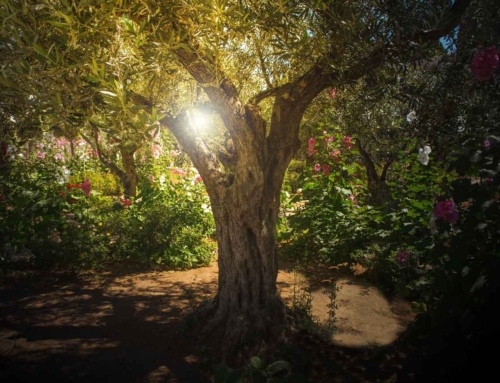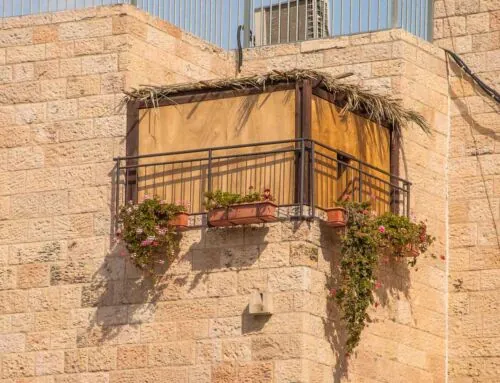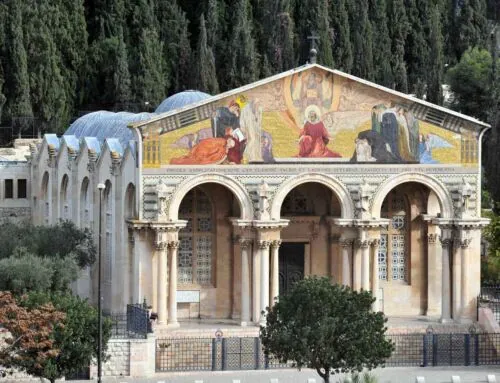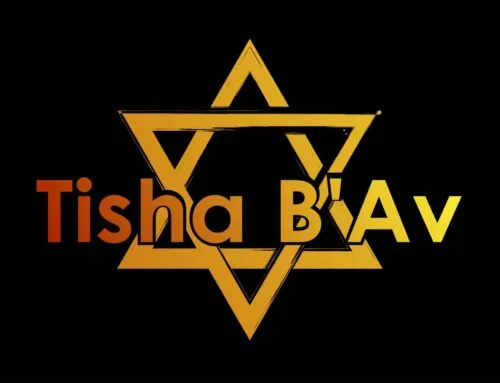From the time of the fall of mankind with Adam and Eve’s disobedience, there has been a need for repentance and atonement. God created an initial path in reconciliation in the Old Testament that was ceremonially accomplished through sacrifices and rituals, the most important of which called for in Leviticus and today referred to as the “High Holy Days”, beginning with Yom Teruah (today referred to as Rosh Hashanah) and ending ten days later with Yom Kippur.
The point of the “High Holy Days” is a process of making amends for sin and wrongdoing and allowing for a fresh start for individuals as well as the Israelites as a whole with G-d. G-d spoke to Moses in the sixteenth chapter of Leviticus and gave certain guidelines of how to fully reach atonement, first starting with the High Priest, who at the time was Moses’ brother, Aaron.
Aaron, and all High Priests to follow, had to first start with purifying themselves before G-d before they could act on behalf of the rest of the Israelites in reaching atonement. These requirements included ritual bathing, sacred clothing, animal sacrifice in the “Holy of Holies” and an animal release known as a “scapegoat”. A bull was to be sacrificed for the sins of the priest and his family and then two goats presented for the people of Israel. Lots were cast and whatever goat the Lord won was sacrificed, while the other was released into the wilderness carrying their sins away with it.
The Israelites were to treat this day, the tenth day of the seventh month, as the Sabbath of Sabbaths. They were not to work at all and were to deny themselves and their own needs and desires completely as they were cleansed and atoned for.
Modern Day Yom Kippur
Today, Israel still observes this day and the entire country essentially shuts down whether you are a practicing Jew or not. There are no radio or television broadcast, no transportation of any kind (you will not arrive or depart from a Holy Land tour on this day, because even the airports are closed), businesses are closed, and many in the country participate in a fast. Even those who do not fast refrain from eating in public, as it is seen as being impolite. Many people go to special services, or the Kotel if they are in Jerusalem and say special prayers, though there is no longer animal sacrifice.
Animal sacrifice ended sometime in the second century AD, although many hope to reinstitute it again in the future in hopes that it will bring about the End Times. Several people have attempted to sacrifice on the Temple Mount by sneaking animals in but have been thwarted. The Israeli government has not allowed this to happen as they are concerned about starting a holy war between the Jewish and the Muslims who currently occupy the Temple Mount, and this could bring about World War III.
For the Christian faith, Christ became that sacrifice for our sins, offering the ultimate pure sacrificial lamb that covered all of our sins, Hallelujah!
While it is not seen as required, some Christians today still observe Yom Kippur, although they do not see the day as a day to make atonement, but rather reflect upon and celebrate Christ’s sacrifice that served as atonement for all and embrace the Jewish roots of the faith. It is always important to realize that every aspect of the Jewish faith can allow you to better understand our Christian faith and Jesus’ fulfillment of the law. The life and teachings of Jesus take on a much deeper and fuller meaning when looked at through a Jewish lens.
As of 2015, the United Nations declared Yom Kippur the first Jewish holiday recognized by the international body. Jewish observers now covered for the day and no official meetings are allowed to take place in order that they have the full ability to have the day off. Other holidays that are afforded the same protections at the United Nations includes Christmas Day, Good Friday, Eid al-Fitr and Eid al-Adha.
How Can You Observe Yom Kippur?
In 2019, Yom Kippur will be observed beginning at sundown on October 8 and ending at sundown on October 9.
In 2020, Yom Kippur will be observed beginning at sundown on September 27th and will end at sundown on September 28th.
If you would like to participate, there are ways that you can commemorate Yom Kippur include fasting, praying, and doing charity. There is never a bad time to do any of these things, and Yom Kippur can be particularly special.
To learn more about the High Holy Days, please see our post about Rosh Hashanah HERE.







